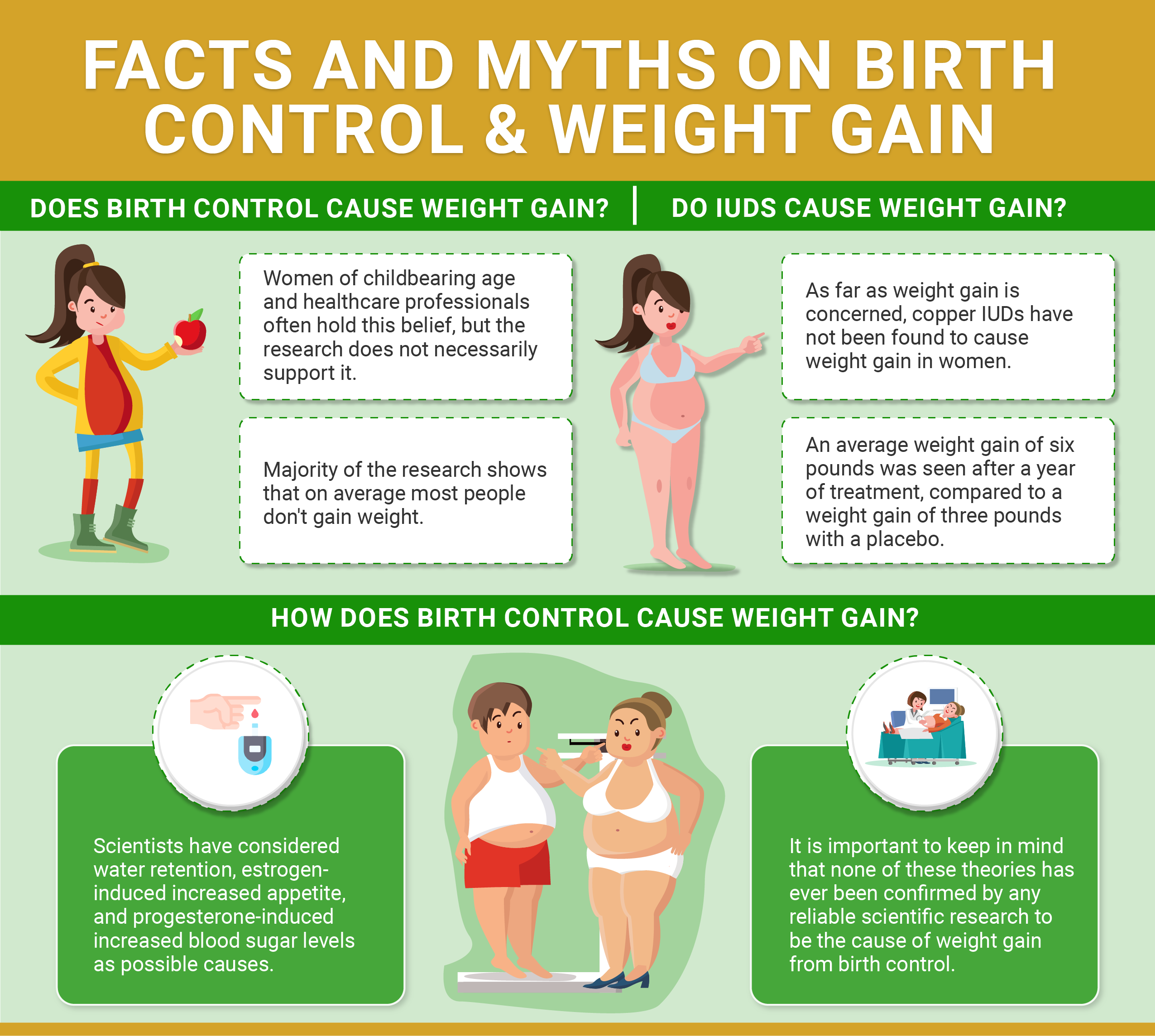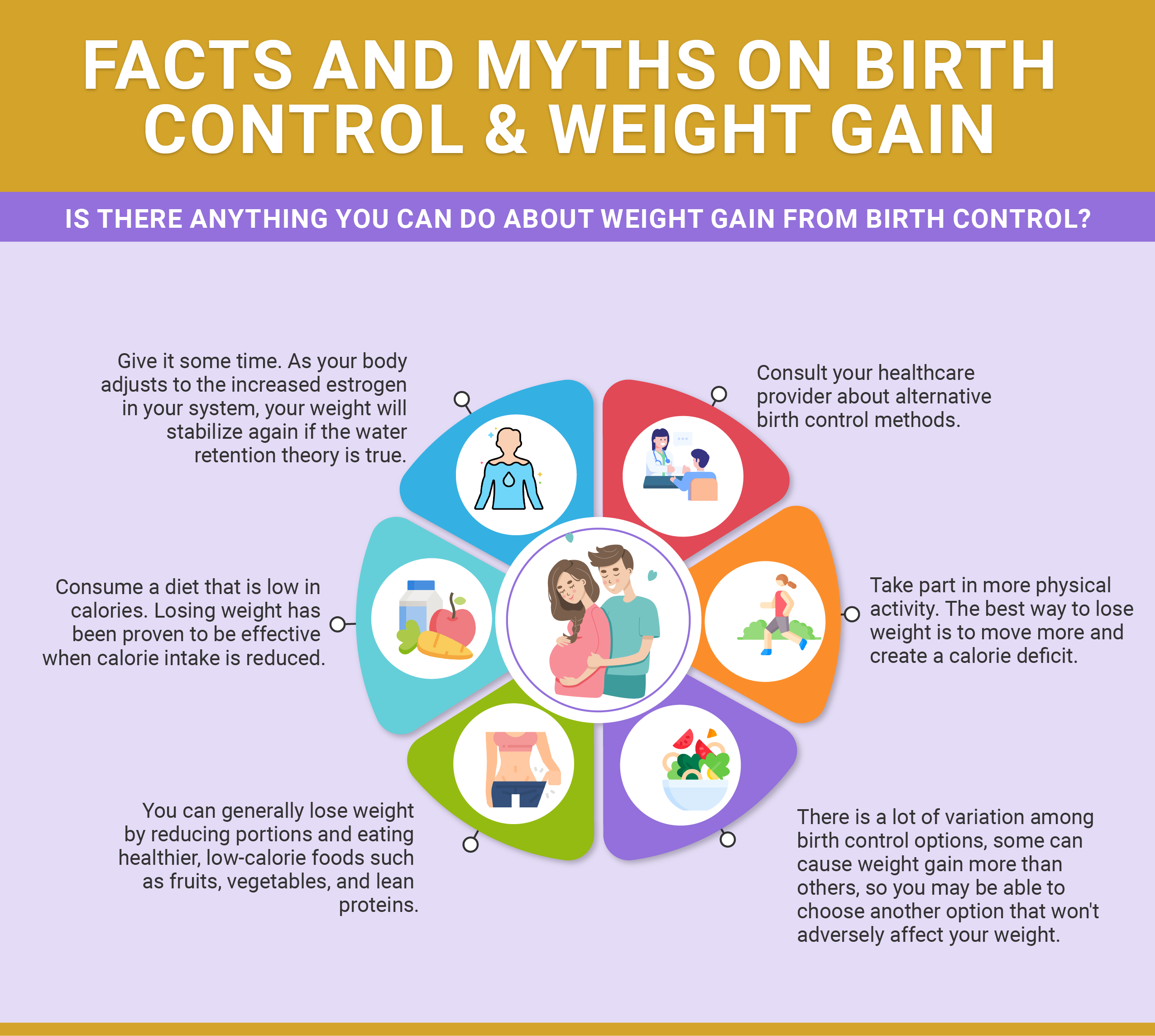Although birth control is one of the most effective methods for preventing pregnancy, many women are hesitant to start using it or discontinue its use due to concerns about weight gain, even though it is extremely effective. Is it true that birth control causes weight gain, or is it a myth? What are some of the best options you have when it comes to birth control? In this article, we are going to take a look at the research that has been done on this topic and provide strategies that can be used to address the potential side effects.
Women of childbearing age and healthcare professionals often hold this belief, but the research does not necessarily support it. Biological responses to medications are diverse. Medications can be extremely effective for one person and virtually ineffective for another. This is something similar that happens with side effects. Aside from the fact that it is impossible to predict who will develop side effects from a medication, one person may gain a lot of weight. At the same time, another may not see any change, while another may even lose weight from the same medication. Let's take a closer look at the different types of birth control and how they affect weight while remembering that despite the research that indicates that most people do not gain weight, the individual response is always possible, even if the majority of the research shows that on average most people don't gain weight.

The idea of contraception through the intrauterine device (IUD) is not new. Still, there are two types - progesterone-containing (hormonal) and copper-containing (non-hormonal devices). As far as weight gain is concerned, copper IUDs have not been found to cause weight gain in women.
In some cases, women who use hormonal IUDs experience weight gain as a side effect and discontinue use. However, research on the effects of IUDs on weight gain suggests that the amount of weight gain experienced is not significantly different from the amount of weight gain experienced with placebos. After using LilettaR and MirenaR for more than a year, manufacturers of these two hormonal IUDs report that up to 6% of women have experienced weight gain from using them. Additionally, the average weight change appears to be modest, with one study finding that an average weight gain of just one pound was registered after a year of treatment. In contrast, another found that an average weight gain of six pounds was seen after a year of treatment, compared to a weight gain of three pounds with a placebo.
Numerous studies have linked the contraceptive implant NexplanonR to weight gain. Clinical trials conducted by the manufacturer have shown that an average of 14% of women in the study gained 2-4 pounds after 1-2 years of using the product, according to the manufacturer. According to another study, this number could be as high as 7 pounds on average. It is important to remember that averages aren't telling the entire story, and some women will gain significantly more than the average. In contrast, others will gain significantly less since so many variables are involved. It has been found that as many as 20% of women who have the implant are discontinuing the use of it because of weight gain.
Some birth control methods contain both estrogen and progesterone, and they are called combined contraceptives. There are several ways that these hormones can be delivered to the patient, depending on their preference, such as pills, patches, or vaginal rings. In a comprehensive review of multiple studies of combination contraceptives, a conclusion has been reached that, on average, these contraceptives do not cause significant weight gain due to their use. However, it is important to remember that this is average, so it may not be the case for every woman. According to the prescribing information, some weight gain was reported during clinical trials of some of these products.
The injection of Depo-Provera (medroxyprogesterone acetate) has consistently been linked to significant weight gain when used as a birth control method. In clinical trials evaluating the drug's safety, 38% of women gained more than 10 pounds after two years of the injection, according to the manufacturer's prescribing information. Similar results were found in another study, which showed that after three years of injection, the average weight gain was 11 pounds, and after two years, it was 8 pounds. A study conducted by this group of researchers found that women who used Depo injections gained more weight in the midsection, raising their risk of developing conditions such as type 2 diabetes and cardiovascular disease.
Women who use birth control tend to gain weight for various reasons. However, the research on this topic has been largely inconclusive. Scientists have considered water retention, estrogen-induced increased appetite, and progesterone-induced increased blood sugar levels as possible causes. However, it is important to keep in mind that none of these theories has ever been confirmed by any reliable scientific research to be the cause of weight gain from birth control.
The following steps can help you lose weight if you've gained weight from birth control:

Weightloss Coach recognizes that several medications, including various birth control products, have a role to play in weight gain. Using evidence-based methods, the Obesity Medicine Physicians at Form Health develop individualized programs for patients based on their medical history and how much medication they have taken in the past. In the initial process, you will be asked whether you are taking any medications or birth control to see if that has contributed to weight gain.

Comments